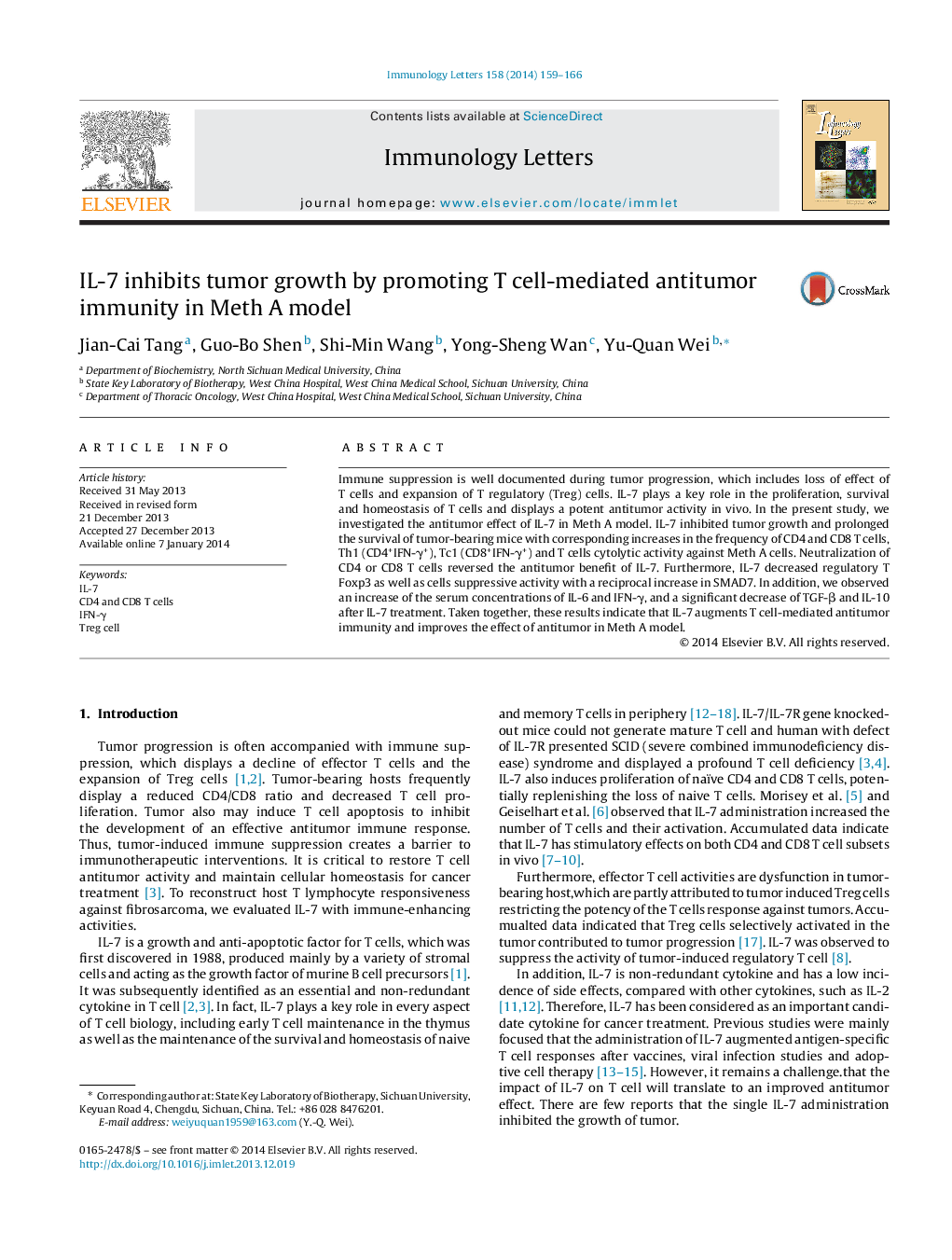| Article ID | Journal | Published Year | Pages | File Type |
|---|---|---|---|---|
| 3355460 | Immunology Letters | 2014 | 8 Pages |
•IL-7 inhibits the tumor growth in Meth A model.•CD4 and CD8 T cell played a key role in IL-7-mediated antitumor immunity.•IL-7 decreased regulatory T cell and abrogated their suppressive activity.
Immune suppression is well documented during tumor progression, which includes loss of effect of T cells and expansion of T regulatory (Treg) cells. IL-7 plays a key role in the proliferation, survival and homeostasis of T cells and displays a potent antitumor activity in vivo. In the present study, we investigated the antitumor effect of IL-7 in Meth A model. IL-7 inhibited tumor growth and prolonged the survival of tumor-bearing mice with corresponding increases in the frequency of CD4 and CD8 T cells, Th1 (CD4+IFN-γ+), Tc1 (CD8+IFN-γ+) and T cells cytolytic activity against Meth A cells. Neutralization of CD4 or CD8 T cells reversed the antitumor benefit of IL-7. Furthermore, IL-7 decreased regulatory T Foxp3 as well as cells suppressive activity with a reciprocal increase in SMAD7. In addition, we observed an increase of the serum concentrations of IL-6 and IFN-γ, and a significant decrease of TGF-β and IL-10 after IL-7 treatment. Taken together, these results indicate that IL-7 augments T cell-mediated antitumor immunity and improves the effect of antitumor in Meth A model.
